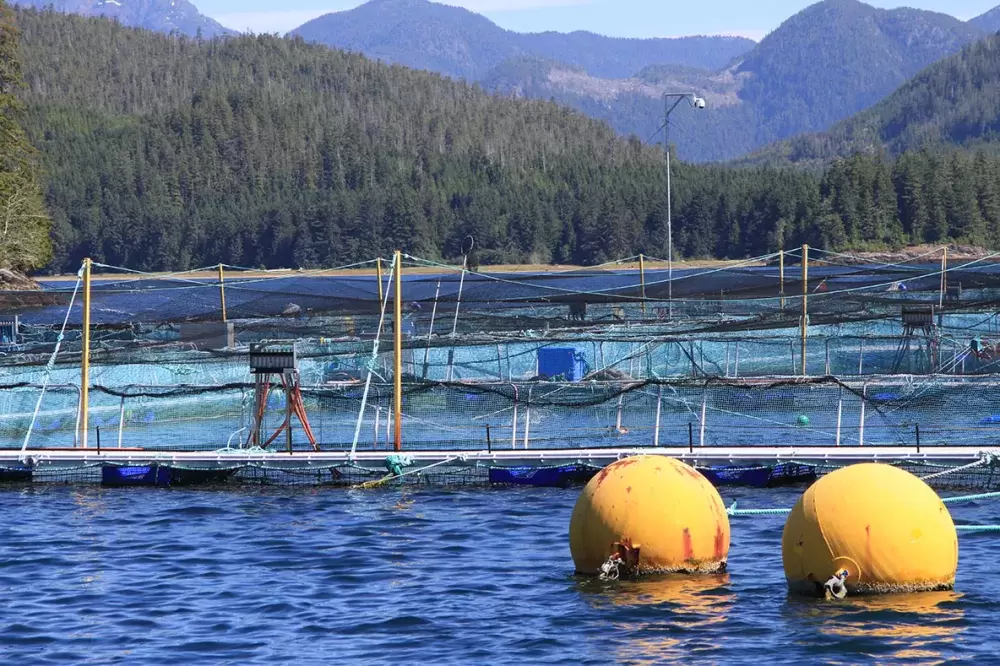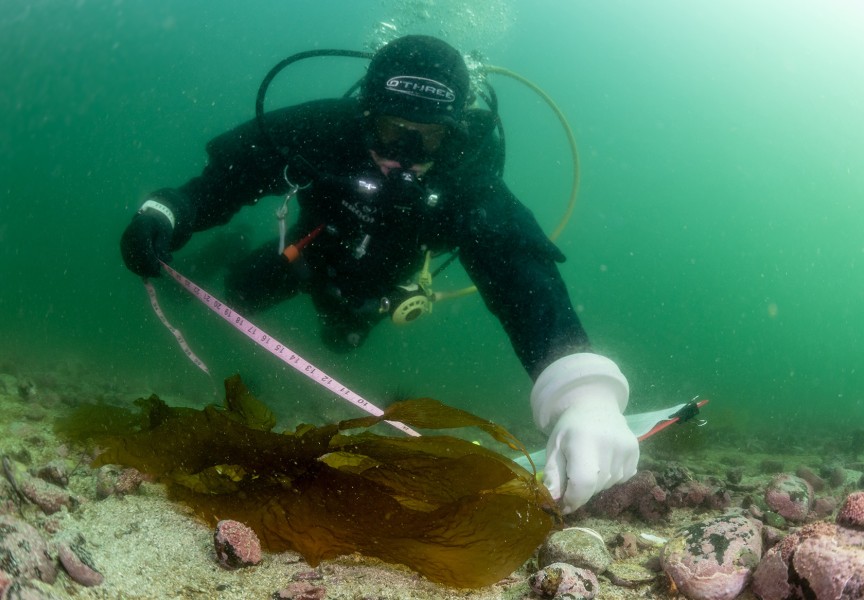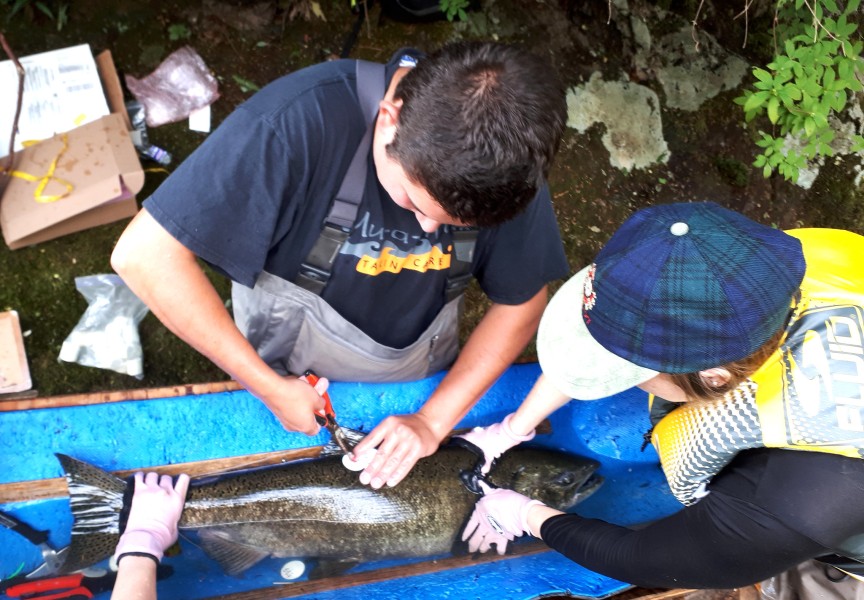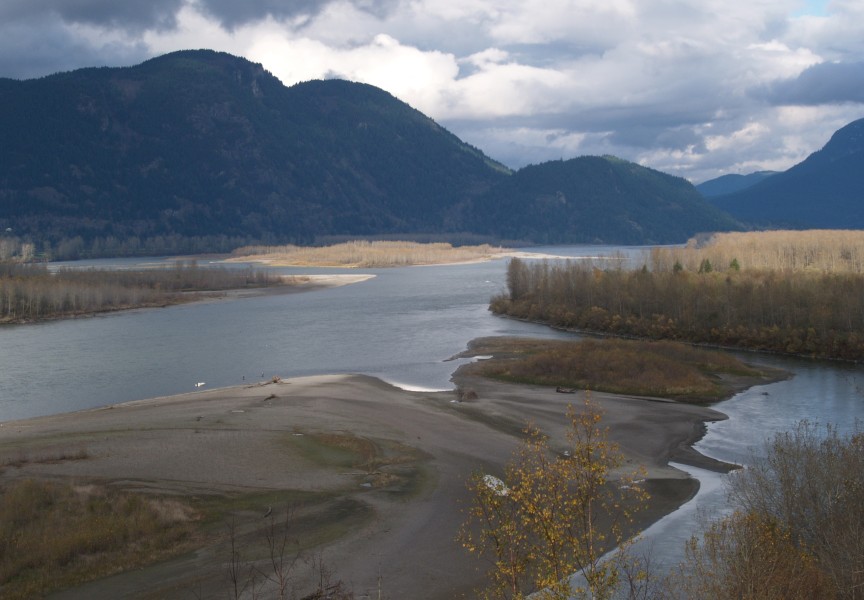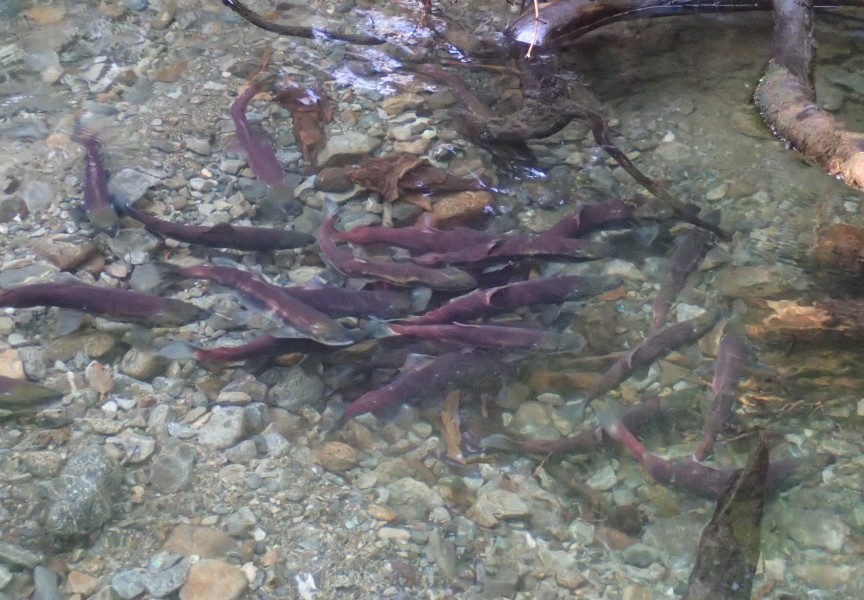Fisheries officials plan to monitor B.C. streams in the fall to determine the effects of a fish farm collapse on Monday off the coast of Washington State.
As many as 300,000 Atlantic salmon escaped from a net pen operated by Cook Aquaculture on Aug. 21, located east of Victoria by Cypress Island in Washington. Cook Aquaculture, an international company that runs fish farms in the United States, Scotland, Spain and Chile, attributes the pen’s collapse to “exceptionally high tides and currents coinciding with this week’s solar eclipse,” yet aerial drone footage of the wrecked facility shows other nearby pens to be intact.
“Farm crews are on site, working to stabilize the farm and to recover as many fish as possible, when conditions permit,” stated the company in a media release. “The health and safety of our employees continues to be our priority and we will wait for tidal conditions to improve before we send divers into the farm to do a full assessment.”
Meanwhile, Fisheries and Oceans Canada is communicating with its US counterpart, the National Oceanic and Atmospheric Administration, to minimize the impacts of the Atlantic salmon in Pacific waters.
“Although this incident happened at an American facility subject to US laws and regulations, our government takes this incident very seriously given its proximity to Canadian waters,” stated Dominc LeBlanc, Minister of Fisheries, Oceans and the Canadian Coast Guard.
Terry Beech, DFO’s parliamentary secretary, noted that the Atlantic salmon will not likely survive on British Columbia’s coast. The federal department is preparing to conduct stream surveys this fall in the areas closest to the escapement.
“The fish aren’t expected to enter into rivers and streams until they mature in the fall. Past research suggests that many of these fish won’t adapt to natural feeding practices and that most would either be caught or [preyed] upon,” said Beech. “While our science shows there is an extremely low likelihood of Atlantic salmon becoming established in B.C. waters, we are constantly monitoring to ensure the health of our marine ecosystems.”
The net pen’s collapse has been condemned by critics of farming Atlantic salmon in West Coast water, including the Union of BC Indian Chiefs (UBCIC), who blame the practice for diseases found in Pacific fish.
“An immediate moratorium must be placed on all open net-pen fish farm applications coast wide, and significant steps must be taken to remove fish farms from our waters to on-land facilities,” stated the UBCIC.
Such a change could make some aspects of the industry unviable, said Jim Lane, southern region fisheries biologist with the Nuu-chah-nulth Tribal Council’s Uu-a-thluk department. The companies would have to factor in the costs of pumping and treating water leaving their pens, he noted, as well as waste treatment.
As part of Canada’s regulatory protections for fish farms, aquaculture operators are required to report all breeches to the DFO. The last significant escapement occurred in 2014 at Brettell Point, north of Powell River. According to DFO records, 13,687 rainbow trout were released when a boat propeller cut a containment pen.
This week’s fish farm collapse in Washington could be several times more severe. Lane noted that the incident could potentially affect West Coast stocks by introducing disease, predation on native juvenile fish and the successful spawning of the Atlantic salmon.
“It is usually never benign when a very large number of domestic farm animals escape into the wild and interact with wild species and the environment,” he said, adding that the potential of antibiotics and other drugs that may have been given to the farmed fish getting into the ecosystem is also concerning.
Fisheries and Oceans Canada advises anyone who catches an Atlantic salmon to keep the fish and report it to 1-800-811-6010.

